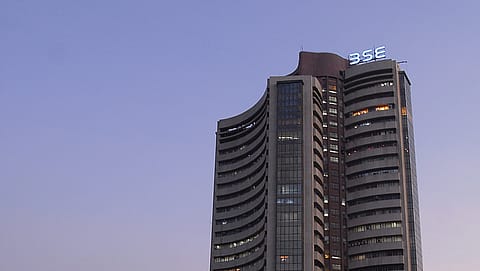Regulatory tailwind powers BSE stock to top of NSE turnover chart
Markets regulator secures Tuesday expiry for country’s oldest bourse, averts clash with NSE.

In a striking twist, even as the National Stock Exchange (NSE) — India’s dominant bourse — continues to bide its time on a long-anticipated IPO, its older counterpart, the Bombay Stock Exchange (BSE), has emerged as the most actively traded stock on the NSE. On Friday, the stock clocked a staggering ₹10,043.58 crore in turnover, topping the list in terms of value.
The unexpected surge comes in the wake of a regulatory intervention by the Securities and Exchange Board of India (Sebi), which proposed that all equity derivative contracts across exchanges be standardised to expire either on a Tuesday or Thursday. The move is aimed at streamlining expiry schedules to avoid market volatility and overlapping expiry-induced price distortions.
For BSE, this couldn’t have come at a better time.
Earlier this month, the NSE had floated a proposal to shift its weekly expiry from Thursday to Monday — a decision that would have put it in direct competition with BSE’s Tuesday expiry and potentially diverted trading volumes away from the smaller exchange. But the regulator’s new proposal appears to have nipped that risk in the bud. Following the consultation paper’s release, the NSE promptly rolled back its plan, sticking to Thursday expiries.
“The Sebi move essentially locks in Tuesday as BSE’s expiry day, preserving its product differentiation and shielding it from the risk of volume migration,” said an equity analyst at a domestic brokerage.
Global brokerage Jefferies, in a note to investors, underscored the regulatory shift as a significant sentiment booster for the BSE stock, stating that the move will abate concerns around BSE’s potential loss of market share and impact on earnings, previously estimated at around 12%. While Jefferies has a “Hold” rating on the stock with a price target of ₹5,250, the analyst hinted at a potential re-rating, on the back of the regulatory clarity, coupled with improved market conditions and lower compliance risk.
The BSE has already clawed back a considerable chunk of its recent losses. According to Jefferies data, BSE's market share in index options premium turnover has surged from 8.2% in March 2024 to nearly 37% in March 2025 — a remarkable gain that reflects increasing traction among traders.
Recommended Stories
The broker also highlighted that Monday and Friday account for roughly 40% of BSE's weekly options premium turnover — indicating that any change in expiry days could have had a substantial earnings impact. But with Sebi’s intervention, those fears seem to have been allayed.
While the BSE rally may have started on regulatory winds, market participants will now be watching closely to see whether the exchange can build on this momentum through continued product innovation and robust execution.